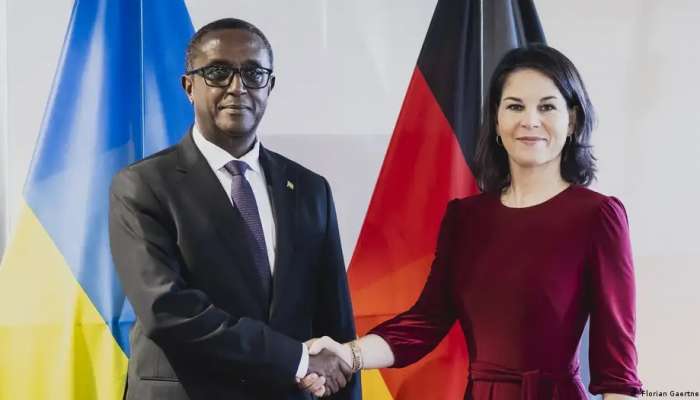
Kigali: German Foreign Minister Annalena Baerbock says Africa will have the full support of Germany and the European Union when fighting future pandemics and other diseases.
Her words came as German pharmaceutical firm BioNTech prepared to open an mRNA vaccine plant to help supply the continent when future pandemics such as COVID-19 arise.
Only one in 100 vaccine doses administered in Africa is currently produced on the continent — a figure Baerbock said should be 60 times higher by 2040.
"Diseases do not recognize national borders or continents — our solidarity must not either," the Green Party politician said as she departed for the trip.
"The path to a fair international health architecture is not a short-distance race, but a team marathon," said Baerbock.
"Team Europe supports the goal of Africa's own vaccine production — from concept to needle."
When the COVID-19 pandemic spread across the globe, Baerbock said, the world realised that "no one is safe until everyone is safe."
She said that, especially in Africa, too many people were defencelessly exposed to the virus at the beginning of the pandemic and "that we as the international community literally could not deliver."
"Fair and rapid access to life-saving vaccines must not depend on whether a child is born in Germany or Rwanda," Baerbock underlined.
On the agenda for Baerbock on Monday was the opening of the first commercial messenger ribonucleic acid (mRNA) Covid-19 vaccine factory on the African continent.
The Mainz-based company BioNTech plans to make mRNA-based vaccines for the continent at its plant in the Rwandan capital, Kigali, starting next year.
It could also produce vaccines against malaria and tuberculosis.
The EU's Global Gateway project will help pay for the enhanced vaccine capacity with €1.2 billion ($1.3 billion) by 2027 — of which some €550 million will come from Germany.
The same initiative also includes up to €300 billion of investment in the infrastructure of emerging and developing countries over the next few years.
Part of the aim is to secure more global influence for the EU, with the project intended to compete with China's "New Silk Road" project.
Baerbock was also due to Rwandan Foreign Minister Vincent Biruta in Kigali, where the pair were to visit a memorial to the victims of the genocide against the Tutsi.
In 1994, Hutu majority militias murdered at least 800,000 members of the Tutsi minority in Rwanda.
Under current President Paul Kagame, Rwanda has become a leader within Africa in many areas, including the fight against corruption, with economic growth well above the continental average.
However, there are criticisms about the persecution of opposition figures and journalists who are critical of the government.
A deal with the United Kingdom for Rwanda to accept migrants who have reached Britain by irregular means is also controversial.
The UK Supreme Court struck down the plan, deeming the country too unsafe.
After arriving in Kigali, Baerbock rejected such calls for asylum procedures to be outsourced from Europe.
Baerbock said she was "a bit surprised" that some German conservatives had suggested a similar asylum policy based on the British model.